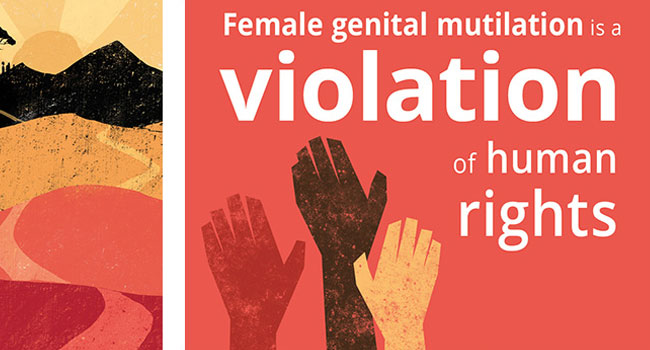By Asmau Ahmad
The Nigeria’s Federal Government and other stakeholders have inaugurated a ministerial ad hoc committee to eliminate the practice of Female Genital Mutilation (FGM) in the country.
The committee was inaugurated on Monday in Abuja by the Director, Family Health, Ministry of Health, Dr Boladele Alonge.
Alonge was represented by Dr John Ovuoraye, the Head of Gender, Adolescent School Health and Elderly Care (GASHE) division of the ministry.
She said it was estimated that globally at least 200 million girls and women have been subjected to the practice of FGM.
Dr Alonge added that about 10 per cent of the number of those affected reside in Nigeria.
She added that “although the Nigeria Demographic and Health Survey (NDHS) reported a decline in the national prevalence of the practice between 2013 and 2018, some three million girls and women are still at risk.”
She defined FGM as all procedures involving partial or total removal of the female external genitalia or other injury to the female genital organs for non-medical reasons.
According to her, the act is a violation of the human rights of women and girls.
Alonge said that the National Policy and Plan of Action for the Elimination of FGM provided a clear plan to guide activities of different stakeholders in all fields.
It also provided a clear plan to guide systems and practices, including request that attention be given to identified emerging hotspot states, she added.
She explained that “the purpose is to ensure that men and women, boys and girls in all their diversity are well informed on the dangers of the practice of FGM and be fully involved in the elimination process of the barbaric custom.
“The committee is therefore expected to work with the national technical committee which is the central coordinating and advisory body to the Federal Ministry of Health on issues of FGM toward implementing activities to eliminate the menace.”
Dr Christian Subam, the Officer-in-Charge, United Nations Population Fund (UNFPA) Nigeria, said that according to UNFPA estimates in 2023, more than 4.3 million girls are at risk of FGM.
According to him, the number is projected to reach 4.6 million by 2030, as conflicts, climate change, rising poverty and inequality continue to hinder efforts to transform gender and social norms that underpin the harmful practice and disrupt programmes that help protect girls.
He added that “in Nigeria, the NDHS 2018 notes that 20 per cent of all women aged 15 to 49, have undergone FGM, while 19.2 per cent of girls age 0 to 14 have undergone FGM.
“This is in spite of a decrease in the national prevalence from 25 per cent to 20 per cent (2013, 2018 NDHS).
“Nigerian women and girls represent 22 per cent of the 68 million at risk of being mutilated by 2030, which is 14.8 million women and girls.”
Dr Sabum said that medicalisation of FGM in Nigeria remained a threat, as well as the need for escalated awareness creation, which must all be addressed urgently.
“The UNFPA led Joint Programme with UNICEF to eliminate FGM is the largest global and national programme to accelerate the abandonment of the harmful traditional practice and thereby advance the rights, health and well-being of women and girls.”
He reiterated UNFPA’s commitment to address the menace and the three transformative results which are; to end maternal deaths, end unmet need for family planning and end Gender Based Violence and harmful traditional practices, including FGM.
Mr Iliyasu Zubair, the Head of Women’s Rights and Protection, Ministry of Women Affairs, said that the ministry had under the Social Component of its budget for 2023, earmarked N200 million to fight harmful traditional practices which includes FGM.
He said that FGM took the largest share of the harmful practices as one of the health challenges in Nigeria.
Mr Zubair called on all stakeholders to collaborate to bring an end to the harmful traditional practice, saying “we all know the damage the practice of FGM has caused to the female gender, from childhood to adulthood and how it also affect families and marriages.
The 11-member committee consists of members of Family Health Department in Ministry of Health, Ministry of Women Affairs, Ministry of Education, Ministry of Information and Culture and Ministry of Youth and Sport Development. Others are Ministry of Finance, Budget and National Planning, National Human Rights Commission, The Nigeria Police, UNFPA and UNICEF.




